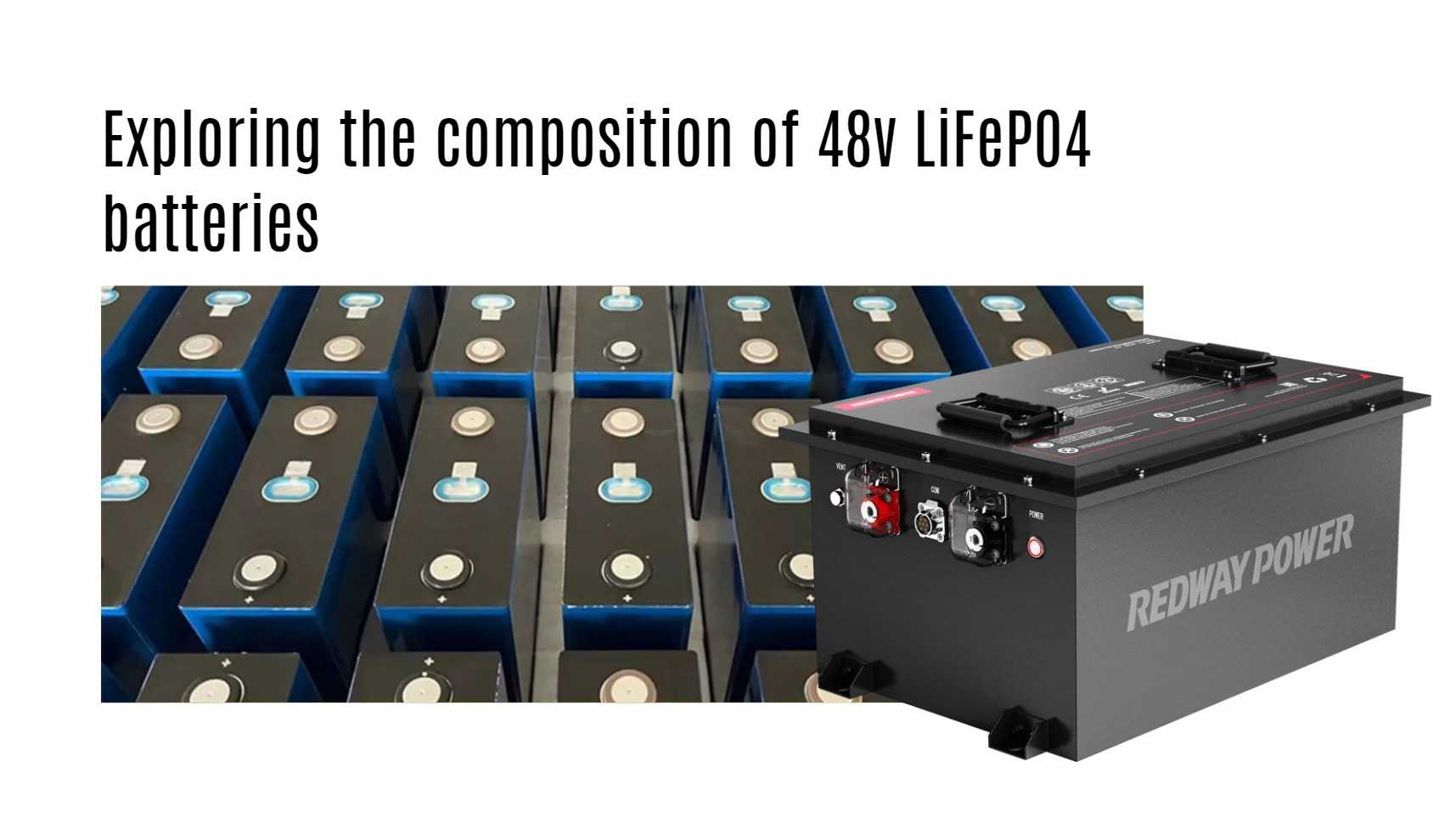Are you looking to power up your energy storage game with the latest technology in batteries? Look no further than LiFePO4 batteries! These cutting-edge powerhouses offer a range of benefits that set them apart from traditional battery types. If you’re curious about how many lifepo4 cells are packed into a 48v LiFePO4 battery, keep reading as we dive deep into the world of lithium iron phosphate technology.
The advantages of LiFePO4 batteries over other types
When it comes to choosing the right type of battery for your needs, LiFePO4 batteries stand out from the crowd. These batteries are known for their superior safety features, making them less prone to overheating or catching fire compared to other types. This is especially important when considering applications where safety is a top priority.
In addition to their safety benefits, LiFePO4 batteries also have a longer lifespan than traditional lithium-ion batteries. With more charge cycles available, you can rely on these batteries for extended periods without worrying about having to replace them frequently.
Wholesale lithium golf cart batteries with 10-year life? Check here.
Another advantage of LiFePO4 batteries is their stable voltage output throughout the discharge cycle. This means you can expect consistent performance from your devices powered by these batteries, providing a reliable power source in various applications.
The advantages of LiFePO4 batteries make them a popular choice among consumers looking for safe and long-lasting energy storage solutions.
Want OEM lithium forklift batteries at wholesale prices? Check here.
Understanding voltage and capacity in LiFePO4 batteries
LiFePO4 batteries are gaining popularity for their excellent performance in various applications. One crucial aspect to understand about these batteries is the relationship between voltage and capacity. Voltage refers to the amount of electrical potential a battery can provide, while capacity indicates how much energy it can store.
In LiFePO4 batteries, the nominal voltage is typically 3.2 volts per cell. To achieve a higher voltage output, multiple cells are connected in series to create a battery pack with the desired voltage level. The capacity of a battery is measured in ampere-hours (Ah) and determines how long it can power a device before needing recharging.
When selecting a LiFePO4 battery for your needs, consider both the voltage and capacity requirements based on your application’s power demands. Understanding how these factors impact battery performance can help you choose the right configuration for optimal efficiency and longevity without compromising on power output or lifespan.
Stay informed about how voltage and capacity play essential roles in maximizing the benefits of LiFePO4 batteries for your specific use cases!
Exploring the composition of 48v LiFePO4 batteries
When it comes to exploring the composition of 48v LiFePO4 batteries, there’s a whole world of technology that goes into making these powerful energy storage units. These batteries are known for their high energy density and long cycle life, making them ideal for various applications ranging from electric vehicles to solar energy storage systems.
At the heart of a 48v LiFePO4 battery are numerous individual lifepo4 cells connected in series to achieve the desired voltage output. Each lifepo4 cell plays a crucial role in storing and releasing electrical energy efficiently and safely.
The composition of these batteries includes not only the lifepo4 cells but also components such as electrodes, electrolytes, and separators carefully engineered to ensure optimal performance and reliability. Additionally, advanced battery management systems help monitor and control the charging and discharging processes to maximize the lifespan of the battery.
Delving into the composition of 48v LiFePO4 batteries showcases the intricate design and engineering behind these innovative power sources that continue to revolutionize green technology industries worldwide.
The role of lifepo4 cells in 48v LiFePO4 batteries
When it comes to 48v LiFePO4 batteries, the lifepo4 cells play a crucial role in powering various devices and systems. These cells are the building blocks of the battery, responsible for storing and releasing energy efficiently.
The quality and quantity of lifepo4 cells directly impact the performance and longevity of the 48v battery. Each cell contributes to the overall voltage and capacity of the battery, determining its power output.
In a 48v LiFePO4 battery, multiple lifepo4 cells are connected in series to achieve the desired voltage level. The arrangement of these cells ensures that enough power is generated to meet specific requirements.
Moreover, lifepo4 cells are known for their superior stability and safety features compared to other types of lithium-ion batteries. This makes them an ideal choice for applications where reliability is paramount.
Understanding the role of lifepo4 cells in 48v LiFePO4 batteries is essential for harnessing their full potential in various industries and settings.
Calculating the number of lifepo4 cells in a 48v battery
Have you ever wondered how many LiFePO4 cells are packed into a 48V battery? Let’s break it down. In a 48V LiFePO4 battery, each cell has a nominal voltage of around 3.2 volts. To reach the total voltage of 48 volts, simple math tells us that there must be 15 lifepo4 cells connected in series within the battery pack.
These individual cells work together harmoniously to provide the power needed for various applications like electric vehicles and solar energy storage systems. Each cell plays a crucial role in contributing to the overall performance and efficiency of the battery pack.
By understanding how these lifepo4 cells come together to form a powerful 48V unit, we gain insight into the intricacies of lithium iron phosphate technology and its impact on renewable energy solutions.
Factors to consider when choosing a 48
Factors to consider when choosing a 48v LiFePO4 battery:
1. Capacity: Determine the capacity you need based on your power requirements and usage patterns.
2. Voltage: Ensure that the voltage of the battery matches the requirements of your application, in this case, 48v for optimal performance.
3. Quality: Invest in high-quality lifepo4 cells from reputable manufacturers to ensure reliability and longevity.
4. Safety features: Look for batteries with built-in safety mechanisms such as overcharge protection and short circuit prevention.
5. Size and weight: Consider the size and weight of the battery to ensure it fits within your space constraints and is easy to handle.
By taking these factors into account, you can confidently choose a 48v LiFePO4 battery that meets your needs efficiently and effectively.







